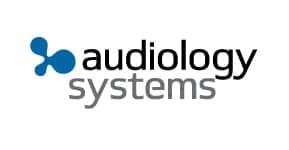
Growing need for tinnitus assessment and treatment. The American Tinnitus Association (ATA) estimates that 50 million people in the United States experience tinnitus to some degree, and of these, about 16 million have it severe enough to seek medical attention. About 2 million people are so seriously debilitated that they cannot function on a “normal” daily basis. In short, tinnitus is a growing problem and patients with tinnitus symptoms present unique challenges for hearing care professionals.
“Tinnitus symptoms vary widely, and it is not always easy to interpret the severity of the tinnitus,” says Wendy Switalski, AuD, audiology development manager at Audiology Systems. “While there are methods for reducing the symptoms of tinnitus, there is in fact no cure-all for tinnitus today. This can make it difficult to know where to begin when a tinnitus patient walks in the audiologist’s clinic.”
Assessment and dialogue: key components in successful tinnitus management. While there is no cure for tinnitus, a hearing aid can help to manage the symptoms. However, a hearing aid is only part of the answer. Successful management of tinnitus symptoms also depends on the fitting of the hearing aid—as well as understanding the effect the tinnitus has on the patient’s daily life. A tinnitus assessment and targeted dialogue is the first step.
“Assessment and dialogue play a crucial role in managing tinnitus,” says Clément Sanchez, AuD, product manager at GN Otometrics. “With an assessment, the person with tinnitus can see it illustrated and quantified on an audiogram. The clinician can then use the audiogram as a starting point for dialogue, determining the need for a hearing aid or masking, and as a base line for further assessments.”
Also important when evaluating a patient with tinnitus symptoms, is having insight into the psychoacoustic elements of the tinnitus and the effect it has on the patient’s daily life. Questionnaires using the THI, THS, and TFI standards can help.
Hearing Review article presents perspectives on tinnitus assessment. An article that features insights about tinnitus assessment from Drs Switalski and Sanchez, as well as Clint Keifer, AuD, an audiologist at Great Lakes Audiology in Toledo, Ohio, is featured in the October Hearing Review. Along with providing their perspectives on how to add tinnitus assessment and treatment to a busy hearing care practice, they point out the importance behind physiological questionnaires (eg, THI, TFI, etc) that give practitioners a clearer picture of the patient’s tinnitus and a better starting point for the tinnitus management strategy. Otometrics’ Astera2 audiometer has a dedicated tinnitus evaluation module that includes psychoacoustics tests (pitch, maskability, residual inhibition, etc) and the questionnaires are integrated in the workflow. Results are stored for easy comparison of results over time, making it easier to see if the tinnitus symptoms has worsened or improved and make adjustments in treatment accordingly.
Advocating for public awareness. Audiology Systems is a bronze corporate member of the American Tinnitus Association (ATA). The company is supporting the annual National Audiology Awareness Month campaign led by AAA. Additionally, the company’s own tinnitus campaign activities and reference materials, as well as available training, can be accessed at www.audiologysystems.com/tinnitus or by calling (855) 283-7978.
Source: Audiology Systems






